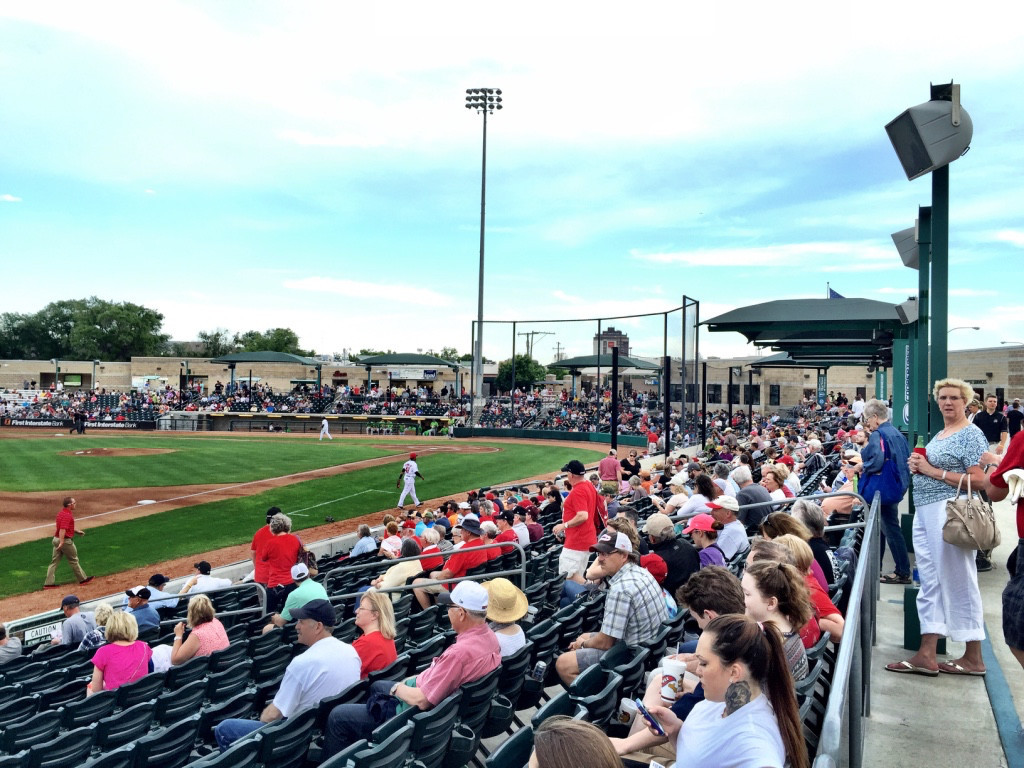We end 2019 with a countdown of the 10 biggest stories of the year on Ballpark Digest, as chosen by editors and partially based on page views. Today, #1: MLB proposes contracting 42 Minor League Baseball teams, drawing the bipartisan wrath of politicians across the nation.
It’s no secret that MLB teams have been overhauling player-development strategies, relying less on traditional scouting and more on video and statistical analysis. Still, when MLB officials proposed a more drastic overhaul of the player-development process that called for the elimination of 42 Minor League Baseball teams, there was plenty of uproar across the country and bipartisan opposition in both houses of Congress.
The plan, as detailed here, came up as MLB and MiLB officials negotiate the next Professional Baseball Agreement (PBA) to replace the current PBA, which expires at the end of the 2020 season. That there would be some contention in these talks is no surprise in the industry. MLB signaled early on that facility quality and player comfort would be two huge drivers of conversations. In response, MiLB commissioned a study more than five months ago to determine the feasibility of upgrading facilities targeted by MLB for elimination. This came after MLB teams were polled regarding their feelings on the worst facilities in their farm systems.
What MLB initially proposed in addition to the contraction of 42 teams: league realignments including new Triple-A and Single-A circuits (in the name of lessened travel), new facilities standards (covering player facilities, including clubhouses, weight rooms and support spaces like kitchens and lounges), and a player-development arrangement that calls for rookies to spend time at MLB camps and not in entry-level leagues, with an additional year of service under team control. As part of this, MLB would cut back the number of Minor League players under contract and pay them a higher wage—two moves that don’t require MiLB negotiation. (We examined how MLB’s goals could be met without the contraction of 42 teams here.)
The uproar after this plan was made public, we suspect, was not anticipated by MLB officials, as politicians across the country decried the move to contract 42 hometown teams. A broad, bipartisan group of legislators, presidential candidates, current players, state officials and local politicos condemned the contraction plan, including a bipartisan group of 106 U.S. Representatives from across the nation. U.S. Senators and presidential candidates Bernie Sanders and Elizabeth Warren spoke out against the plan. The threat: that if contraction proceeds, Congress would reexamine MLB’s anti-trust and minimum-wage exemptions, and to decrease the number of visas allocated to the industry.
MLB’s response? To accuse MiLB owners of not being willing to negotiate facilities issues, and to say that a proposed (and, to date, a vaguely defined) Dream League will be a suitable replacement. And, in an invocation of the nuclear option, MLB Commissioner Rob Manfred said the majors really don’t need the existing minor leagues at all: play ball or else we can find alternatives in the form of indy ballparks and investors willing to bring pro baseball alternatives to existing MiLB cities.
Things quieted down during the holidays, but talks should continue shortly. You can expect the political rhetoric to continue: 2020 is an election year, and there’s just no political downside for any candidate to decry the evil MLB owners who want to shut down hometown baseball in 42 markets. In fact, with the Iowa caucuses approaching, you can expect more presidential candidates to raise the issue in communities like Clinton and Burlington. And the whole thing may have an unintended side effect: some are calling for the MLB players union to extend their reach to the nonunionized minor league players.
Photo of Dehler Park, home of the Pioneer League’s Billings Mustangs, one of the teams proposed for contraction by MLB negotiators.
Best of 2019, #2: Field of Dreams Game Announced
Best of 2019, #3: Rays Pursue Joint-Market Solution with Montreal
Best of 2019, #4: Work on Globe Life Field Winds Down
Best of 2019, #5: 2020 Dodger Stadium Renovations Unveiled
Best of 2019, #6: Robo-Umps Debut Under MLB/Atlantic League Deal
Best of 2019, #7: New MiLB Ballparks Debut
Best of 2019, #8: A’s Continue Howard Terminal Ballpark Pitch

